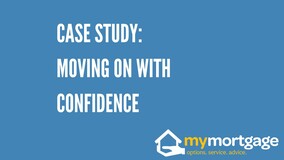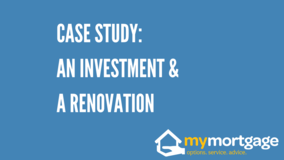Frequently Asked Mortgage Questions
(and some useful videos)
1. Why should I use a Mortgage Advisor?
Mortgage Advisors add value when it comes to arranging your home loan:
First off, we're completely free to you (yup, you heard that right!). We get paid by the bank, not by you.
Secondly, we'll provide you with all the options available - not just those from one bank. We want you to have all the information you need to make the best decision for you.
Thirdly, we can give you expert advice on how to structure your loan and pay it off quicker. We're all about helping you save time and money!
We're known for providing a rapid, easy-to-understand, and supportive service. We want to make the process as stress-free as possible for you.
Since we do this all the time, we know a good deal when we see one.
2. What types of Mortgages are there?
Here are a few of the most common ones you'll come across:
First up, Fixed Interest Rates. These loans offer a fixed interest rate for a set period of time (typically between 6 months to 5 years). This provides predictability and stability in your payments, as your interest rate won't rise during this time.
On the other hand, Floating Rates mean that your interest rate can fluctuate depending on external factors, such as the national money rate. While this may sound risky, Floating Rates can offer great flexibility when it comes to making lump sum payments, particularly if your income includes bonuses or overtime.
Then there's Revolving Credit/Offset loans, which is essentially a floating loan that works like an overdraft. You'll have an account that you can draw money from and pay back whenever you like. However, you'll be charged interest on the amount you're in overdraft.
Of course, every borrower is unique, and there's no one-size-fits-all approach. That's why it's important to speak to a Mortgage Advisor who can help you determine the best type of Mortgage for your specific needs. We're always here to help, so feel free to reach out if you have any questions!
3. How much will I need for my first home loan deposit?
When it comes to buying your first home, the deposit you have can make a big difference. Here's a breakdown of the different deposit tiers and what they mean for you:
If you have less than 10% deposit, be prepared for the banks to be a bit pickier with who they lend to but the government's First Home Loan scheme does give us options here if you meet the criteria. You can find more information about Kainga Ora First Home Loans here.
With a 10% deposit you may still encounter some fees and a margin on your interest rates and so depending on your personal situation, even with a 10% deposit, we may recommend the Kainga Ora First Home Loan as an option.
If you have a 20% deposit, this is where you'll typically get the best value in terms of rates, deals, and cash back and also have more flexibility from the banks with things like income type, existing debt and servicing requirements.
At My Mortgage, we can help you figure out how the funds you have available can become a deposit for your first home. Our team of experts can guide you through the process and provide you with personalised advice to help you make informed decisions. So, if you're ready to take the first step toward owning your dream home, let's chat!
4. Can family help me into my first home?
If you're a first-home buyer and struggling to reach the required deposit for your dream home, there are options available to you. One such option is to receive financial assistance from a family member or friend.
As your mortgage advisor, we have ways to structure this arrangement to minimise the cost and risk to both you and your family member or friend. We understand that this can be a complex process, so we're here to help. Here is some helpful information about options.
If you're interested in exploring this option for your first home purchase, our team is here to help. We can guide you through the process and provide you with personalised advice based on your unique circumstances. So, don't hesitate to get in touch with us to start the conversation!
5. What does it cost?
Using a mortgage advisor won't cost you a thing! We are compensated by the banks for bringing them business, so you get the best of both worlds. You'll receive great advice and service from someone who will explore all the options available to you, while still being able to access the same (and often better) rates, cash backs, and home loan products as you would from your own bank.
When it comes to the cost of a home loan, interest rates, and structures can vary widely, and they are constantly changing. But don't worry, we will recommend the right interest rate and loan structure for your unique situation.
To give you a better idea of your potential repayment amounts, we have a really handy tool that can provide you with payment details based on your loan amount, interest rate, and term. This can be a great starting point for initial budgeting for your new home, and we can take a look at it together when we meet. So, don't hesitate to reach out to us to get started!
6. What are the costs involved in buying my first home?
It's important to note that while our services are completely free, there are other professionals you'll need to work with when purchasing a property. To help you budget, we've provided some rough estimates for their fees:
Lawyer: Your lawyer or solicitor will manage the property transaction, your KiwiSaver investment if applicable, the transfer of title, and funds between yourself and the vendor. They typically charge between $2000 - $3000 depending on the property.
Registered Valuation: This may or may not be required by the bank, but we can talk you through it. Registered valuations cost between $1000 - $1400 depending on the property, and we can organise this for you.
Builder's Report: It's a good idea to get a builder to inspect the property before committing to buying it. They'll be able to tell you if the house is structurally sound and if the cladding is of good quality, among other things. A builder's report will cost you between $400 - $800.
LIM Report: A LIM report is ordered through the council and will tell you about any building consents ordered on the property, any changes to the title since it was issued, and more. These reports typically cost between $250 - $500.
7. What information will I need to provide when applying for a Mortgage?
We aim to simplify the entire purchase process for you, and although there is some necessary paperwork involved in submitting a loan application, we will streamline this process for you as much as possible.
To begin with, we will provide you with our Application Form, which will give us some basic information about you. We will also require income evidence, usually in the form of payslips, or for self-employed or business owners, your most recent Financial Statements. Additionally, bank statements are needed to show your income and daily spending but we have a really simple solution for bank statements that make them very easy to get..
Lastly, your deposit can come from a variety of sources, including the proceeds from the sale of another property, savings, KiwiSaver, and gifting/loan from family which we will need to provide to the lenders as well.
8. How can I pay off my Mortgage faster?
We believe that the key to paying off your mortgage quickly is to have the right structure in place for your unique circumstances. Refinancing is a common scenario for clients who already own property, and we specialise in helping them find the best loan type, account structure, and loan term to accelerate their mortgage repayment.
Curious about how the refinancing process works and what deals are available for you? Check out our blog, which explains how simple and cost-effective it can be to refinance and save money. Our team is always available to discuss your options and help you choose the best path to paying off your mortgage faster.
9. Which banks have the best rate?
It really varies from situation to situation. Banks have complex structures and it can be tough to navigate their paperwork and terminology. That's where we come in. We'll sort through it all and find the best deal for you.
In fact, we're often able to offer even better rates than banks that offer special rates for certain companies or workplaces. We know the industry and are in constant communication with the banks, so we can always get you the best deal. And if a bank isn't meeting our expectations, we'll be the first to call them out on it.
Our goal is to always to get the best structure and best interest rate to suit your personal situation as possible for you. So get in touch with us to see how we can help you get the best deal on your mortgage.
10. What if I'd like to build a home?
If you're considering building a new home, we can help you through the process from start to finish. While building a home takes longer than purchasing an existing one, it can be an exciting and rewarding experience.
Banks may have some additional conditions to meet when financing a new build, but we've got you covered and can guide you through the process.
We've put together a construction finance guide that explains everything you need to know about financing a new build and how we can help. It's easy to understand, so you can be confident in your decisions.

Some Handy Videos to Check Out
Fixing your home loan
On the video to the right you will hear Adam talk about why you should be fixing your home loan and how we can help to do this for you and save you money in the process.
Get in touch with the My Mortgage team about fixing your home home if you would like to discuss this further.

Property Valuations
With all of the confusion over Government Valuations, Rating Valuations, Capital Values the only thing the banks will look at is the value they hold for the property or a registered valuation.
Check out the video about Registered Valuations to see why these are more commonly requested by the bank.
Reach out to the team if you would like to discuss further

Saving money on short term debt
A lot of people with Home Loan's have short term debt in the form of Vehicle Loan's, Personal Loans, Hire Purchases or Credit Cards. With some smart thinking you can get these debts paid off faster by adding them to your home loan.
An example of this is a client we recently worked with. They had $2500 owing on a Q Card, $3000 on a GE Creditline card and $4500 owing on a credit card.
Although all of these debts started off interest free and the client intended to repay them before the interest free term expired, they remained in place and the average interest rate across those three items was now over 20%!! They were currently making payments of $260 per month on these debts which would see them repaid over 5 years, with a total interest cost of almost $6K!
We arranged for a top up to their existing home loan to consolidate these loans at an interest rate of just over 6% fixed for 3 years. With a small increase in their monthly payments to $300 they will now have this loan repaid in 3 years time and will only pay $1000 in interest.
That's a saving of $5000 and 2 years in repaying the debt.
On top of that we took the time to work out a new budget with the clients so that they will not see themselves fall in to this debt cycle again.
If you would like to discuss options to reduce your overall interest cost and get rid of those small, niggly, debts then contact us or share this with someone who would benefit from our advice.
Other Helpful Advice from the My Mortgage Blog
Book a time with an expert
For My Mortgage, home loans are all about people and stories, not numbers and dollars. By booking a time to speak with one of our expert team, we can give you free advice, guidance & what we think will be right for you as well as explain our mortgage repayment calculators. We can connect in person, via phone, online or email.
Whatever works best for you.









